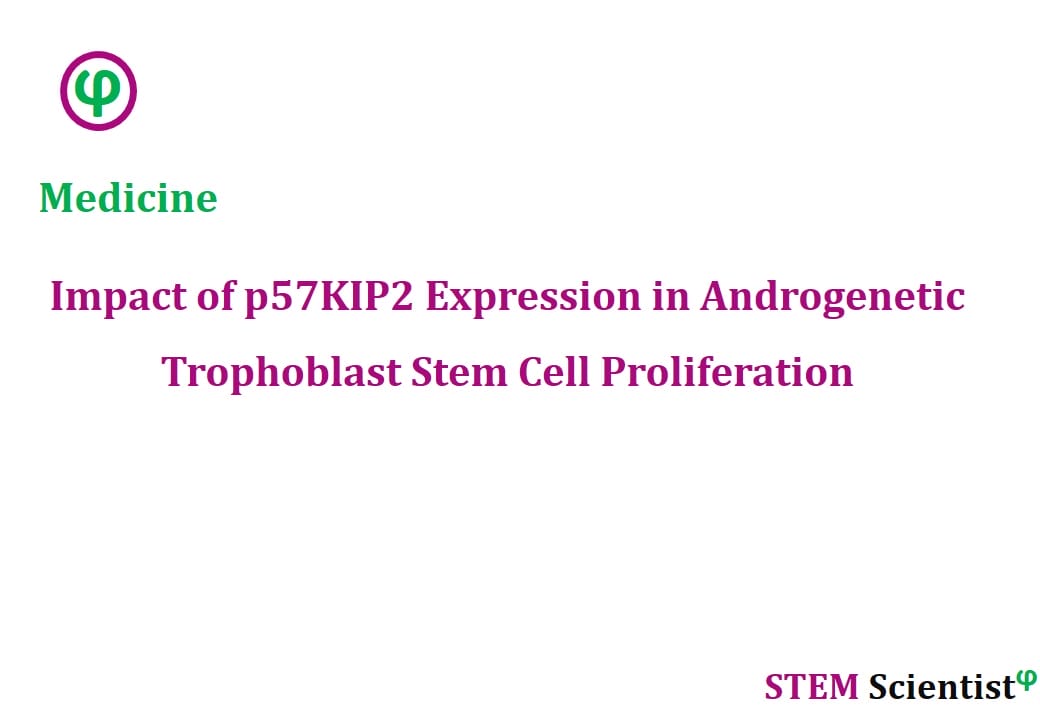
The following study was conducted by Scientists from Tohoku University Graduate School of Medicine, Sendai, Japan. Study is published in Proceedings of the National Academy of Sciences Journal as detailed below.
Proceedings of the National Academy of Sciences; 116(52): 26606-26613
Loss of p57KIP2 Expression Confers Resistance to Contact Inhibition in Human Androgenetic Trophoblast Stem Cells
Significance
Complete hydatidiform moles (CHMs) develop from androgenetic conceptuses and are characterized by enhanced proliferation of trophoblast cells and a significantly higher risk of trophoblast tumors. Loss of the maternal genome and duplication of the paternal genome are considered to be responsible for the phenotype, but the detailed mechanism remains unclear. Here, we report the derivation of trophoblast stem (TS) cells from CHMs. These cells have reduced sensitivity to contact inhibition of cell proliferation and exhibit aberrant expression of imprinted genes, which are expressed from only 1 parental allele. We also reveal that the maternally expressed imprinted gene p57KIP2 would be responsible for the enhanced proliferation of CHM-derived TS cells. Our findings provide an insight into the pathogenesis of CHMs.
Abstract
A complete hydatidiform mole (CHM) is androgenetic in origin and characterized by enhanced trophoblastic proliferation and the absence of fetal tissue. In 15 to 20% of cases, CHMs are followed by malignant gestational trophoblastic neoplasms including choriocarcinoma. Aberrant genomic imprinting may be responsible for trophoblast hypertrophy in CHMs, but the detailed mechanisms are still elusive, partly due to the lack of suitable animal or in vitro models. We recently developed a culture system of human trophoblast stem (TS) cells. In this study, we apply this system to CHMs for a better understanding of their molecular pathology. CHM-derived TS cells, designated as TSmole cells, are morphologically similar to biparental TS (TSbip) cells and express TS-specific markers such as GATA3, KRT7, and TFAP2C. Interestingly, TSmole cells have a growth advantage over TSbip cells only after they reach confluence. We found that p57KIP2, a maternally expressed gene encoding a cyclin-dependent kinase inhibitor, is strongly induced by increased cell density in TSbip cells, but not in TSmole cells. Knockout and overexpression studies suggest that loss of p57KIP2 expression would be the major cause of the reduced sensitivity to contact inhibition in CHMs. Our findings shed light on the molecular mechanism underlying the pathogenesis of CHMs and could have broad implications in tumorigenesis beyond CHMs because silencing of p57KIP2 is frequently observed in a variety of human tumors.
Source:
Proceedings of the National Academy of Sciences
URL: https://www.pnas.org/content/116/52/26606
Citation:
Takahashi, S., H. Okae, et al. (2019). “Loss of p57KIP2 expression confers resistance to contact inhibition in human androgenetic trophoblast stem cells.” Proceedings of the National Academy of Sciences 116(52): 26606-26613.


